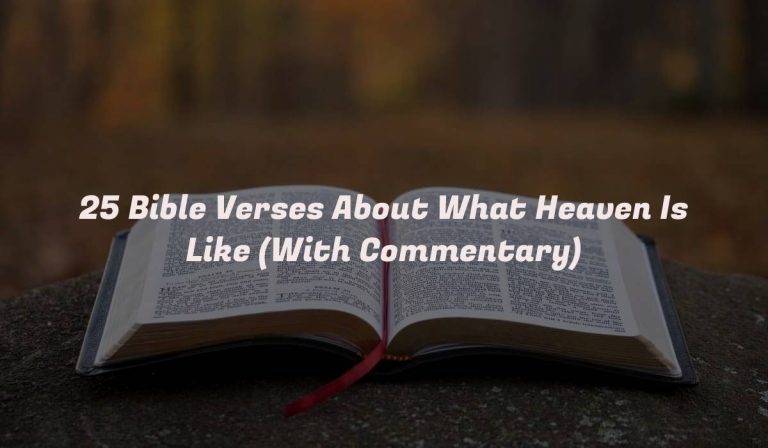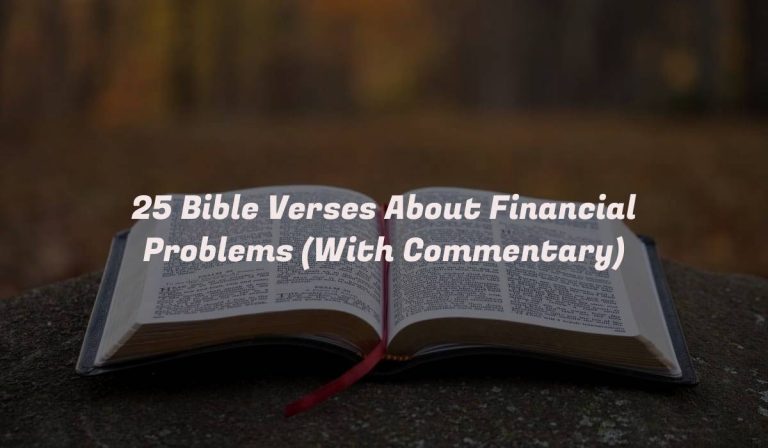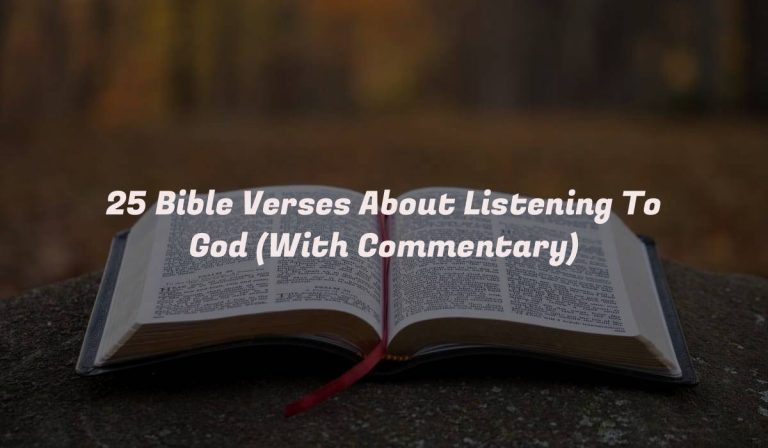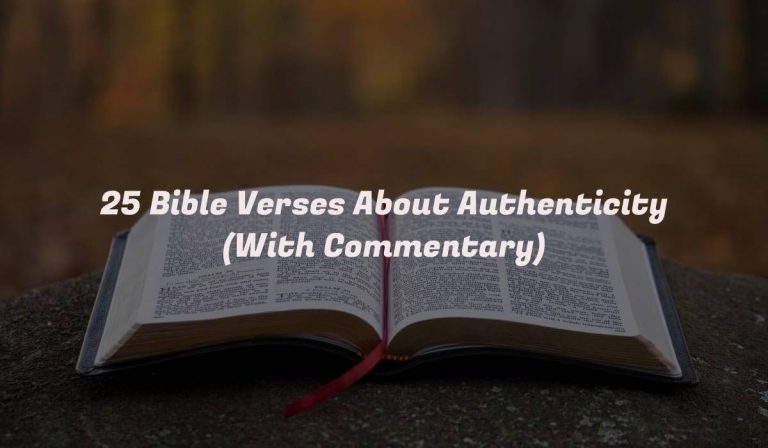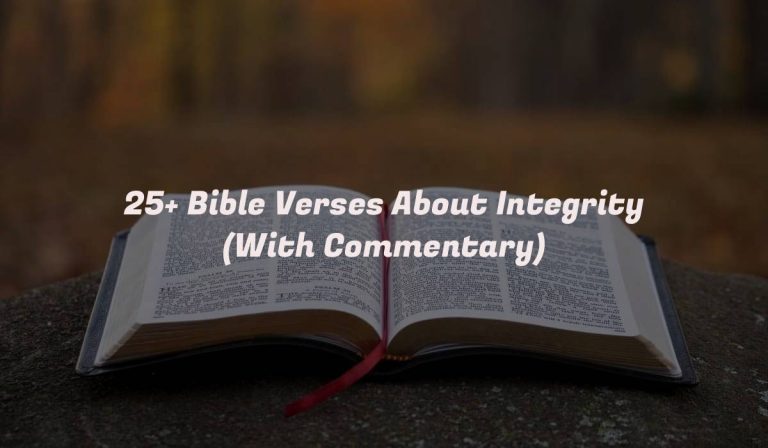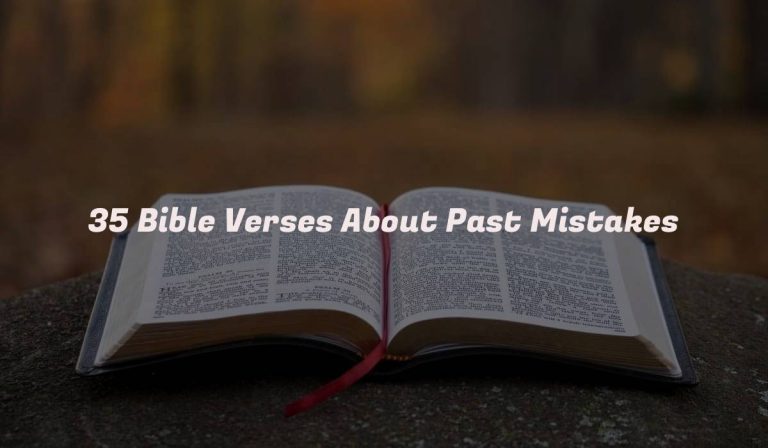25 Bible Verses about Workers of Iniquity I Never Knew You (With Commentary)
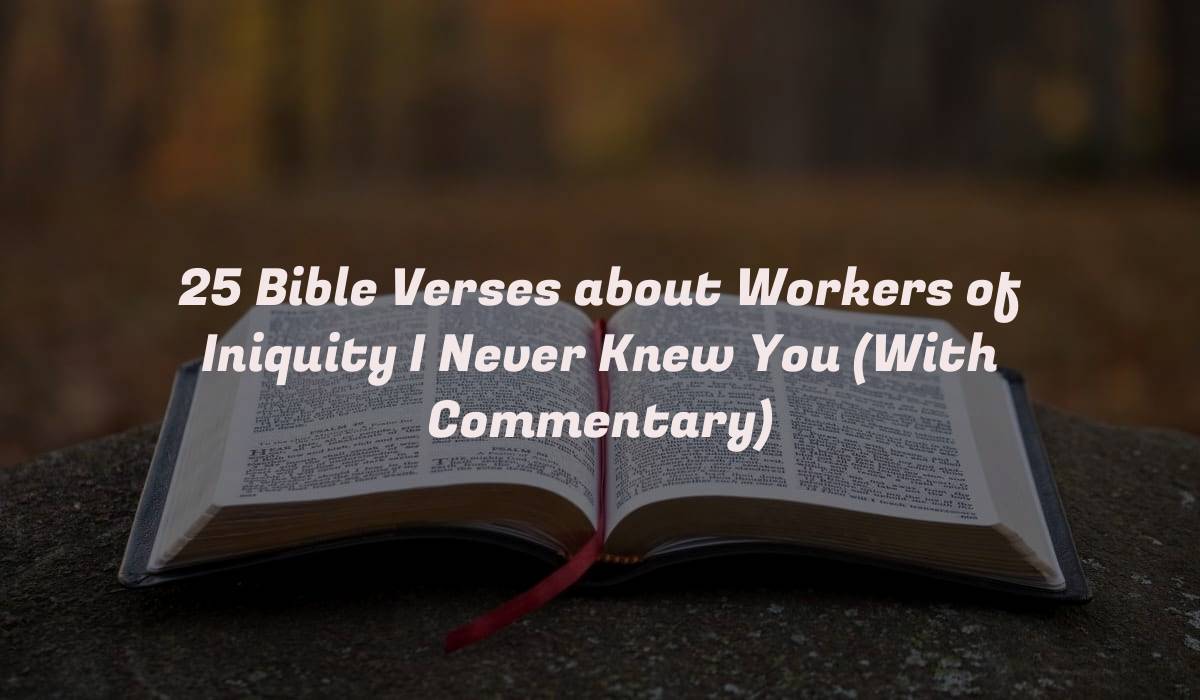
Jesus warned about the existence of workers of iniquity, individuals who claim to follow Him but lead lives contrary to His teachings. Join me as we delve into thought-provoking verses that illuminate the nature and consequences of such deception. Together, let’s explore how these scriptures can deepen our discernment and guide us towards a genuine relationship with Christ, free from hypocrisy and deceit.
Bible Verses about Workers of Iniquity I Never Knew You
Matthew 7:23
“And then I will declare to them, ‘I never knew you; depart from Me, you who practice lawlessness!’”
This verse comes from Jesus’ teaching in the Sermon on the Mount. It serves as a warning that not everyone who claims to know Jesus will enter the Kingdom of Heaven. Those who persist in living a life of disobedience and lawlessness will face rejection from the Lord. It emphasizes the importance of genuine faith accompanied by a transformed life.
Matthew 25:12
“But he answered and said, ‘Assuredly, I say to you, I do not know you.’”
These words are part of the parable of the ten virgins, illustrating the need for readiness and preparedness for the return of Christ. In this particular verse, the bridegroom’s response signifies exclusion and disappointment for the unprepared virgins. It highlights the significance of actively living out one’s faith and maintaining a genuine relationship with God.
Luke 13:27
“But He will say, ‘I tell you I do not know you, where you are from. Depart from Me, all you workers of iniquity.’”
Jesus speaks these words in response to those who claimed to have eaten and drunk in His presence but remained unchanged in their hearts. Here, Jesus emphasizes that true discipleship involves a personal relationship with Him and a life characterized by righteousness, rather than mere external association or religious practices.
Luke 6:46
“But why do you call Me ‘Lord, Lord,’ and not do the things which I say?”
In this verse, Jesus challenges His listeners to examine their actions in light of their professed faith. It underscores the importance of obedience to God’s commands as an expression of true discipleship. Calling Jesus “Lord” without aligning one’s life with His teachings is inconsistent and does not reflect a genuine relationship with Him.
Matthew 23:27
“Woe to you, scribes and Pharisees, hypocrites! For you are like whitewashed tombs which indeed appear beautiful outwardly, but inside are full of dead men’s bones and all uncleanness.”
Jesus directs these strong words to the religious leaders of His time, exposing their hypocrisy. While they presented an external appearance of righteousness, their hearts were corrupted and far from God. This verse serves as a warning against superficial religiosity and emphasizes the importance of genuine inner transformation.
Matthew 23:28
“Even so you also outwardly appear righteous to men, but inside you are full of hypocrisy and lawlessness.”
Continuing from the previous verse, Jesus reiterates the contradiction between the outward image projected by the scribes and Pharisees and their true inner condition. They were experts in appearing righteous before others, yet their hearts were steeped in hypocrisy and disregard for God’s law. This verse reminds us of the need for authenticity and integrity in our relationship with God.
Matthew 23:33
“Serpents, brood of vipers! How can you escape the condemnation of hell?”
In this verse, Jesus addresses the religious leaders directly, rebuking their wickedness and warning them of the consequences of their actions. He vividly describes their spiritual condition and raises the question of their ultimate fate. This verse emphasizes the seriousness of hypocrisy and the urgent need for repentance.
Matthew 25:41
“Then He will also say to those on the left hand, ‘Depart from Me, you cursed, into the everlasting fire prepared for the devil and his angels.’”
These words are part of Jesus’ description of the judgment that awaits those who have rejected Him and lived in rebellion against God. The phrase “Depart from Me” signifies separation from God’s presence, and the reference to everlasting fire speaks of the eternal consequences of persistent unbelief and unrepentant sin.
Matthew 13:41
“The Son of Man will send out His angels, and they will gather out of His kingdom all things that offend, and those who practice lawlessness.”
This verse occurs within the parable of the wheat and the tares, where Jesus explains that the wheat represents the righteous and the tares symbolize the workers of iniquity. Here, Jesus foretells a future judgment when the wicked will be separated from the righteous. It emphasizes the certainty of divine justice and the accountability of those who persist in living a life of lawlessness.
Matthew 13:42
“and will cast them into the furnace of fire. There will be wailing and gnashing of teeth.”
Jesus continues to describe the fate of the workers of iniquity in this verse. The image of being cast into a furnace of fire portrays the severity of their punishment. The mention of wailing and gnashing of teeth signifies intense anguish and regret. It highlights the eternal consequences of rejecting God’s grace and choosing a life of rebellion.
Luke 6:49
“But he who heard and did nothing is like a man who built a house on the earth without a foundation, against which the stream beat vehemently; and immediately it fell. And the ruin of that house was great.”
This verse concludes Jesus’ teaching on building one’s life on a solid foundation. It contrasts those who not only hear His words but also act upon them with those who hear but do not respond in obedience. The house built without a foundation represents a life without a firm footing in God’s truth, and its subsequent collapse highlights the devastating consequences of disregarding Jesus’ teachings.
Luke 6:47
“Whoever comes to Me, and hears My sayings and does them, I will show you whom he is like.”
Jesus presents a positive contrast in this verse, highlighting the blessedness of those who not only hear His teachings but also put them into practice. The emphasis is on actively engaging with His words and allowing them to shape one’s thoughts, attitudes, and actions. Such individuals experience a transformative relationship with Jesus and bear the fruit of genuine discipleship.
Matthew 13:50
“and cast them into the furnace of fire. There will be wailing and gnashing of teeth.”
Similar to the previous verse, this repetition by Jesus emphasizes the gravity and inevitability of the final judgment for the workers of iniquity. The imagery of a furnace of fire depicts the severity of their punishment, while wailing and gnashing of teeth signifies the intense remorse and agony they will experience in eternity.
Matthew 7:21
“Not everyone who says to Me, ‘Lord, Lord,’ shall enter the kingdom of heaven, but he who does the will of My Father in heaven.”
This verse challenges the notion that mere verbal acknowledgment of Jesus as Lord guarantees entrance into the kingdom of heaven. Jesus emphasizes the importance of aligning one’s life with the will of the Father, indicating that true discipleship involves a lifestyle characterized by obedience to God’s commands.
Matthew 13:49
“So it will be at the end of the age. The angels will come forth, separate the wicked from among the just.”
In this verse, Jesus continues to explain the parable of the wheat and the tares. He describes the future separation of the wicked from the righteous at the end of the age. This verse underscores the reality of divine judgment and the certainty that God will distinguish between those who belong to Him and those who persist in wickedness.
Luke 13:28
“There will be weeping and gnashing of teeth when you see Abraham and Isaac and Jacob and all the prophets in the kingdom of God, and yourselves thrust out.”
These words of Jesus highlight the remorse and regret that the workers of iniquity will experience when they witness the righteous, including the patriarchs and prophets, being welcomed into the kingdom of God. The contrast between their exclusion and the presence of those they had disregarded serves as a powerful reminder of the consequences of unrepentant sin.
Matthew 13:30
“Let both grow together until the harvest, and at the time of harvest I will say to the reapers, ‘First gather together the tares and bind them in bundles to burn them, but gather the wheat into my barn.’”
Jesus speaks these words in the parable of the wheat and the tares, emphasizing the coexistence of the righteous and the workers of iniquity until the time of harvest. The tares, representing the unrighteous, will face divine judgment and be separated from the righteous. This verse underscores the reality of accountability and the ultimate separation of those who persist in sin.
Matthew 25:30
“And cast the unprofitable servant into the outer darkness. There will be weeping and gnashing of teeth.”
Jesus tells this parable to illustrate the importance of stewarding the resources and opportunities given by God. The unprofitable servant represents those who neglect their responsibilities and fail to use their talents for God’s purposes. The consequence of their unfaithfulness is being cast into outer darkness, where there is weeping and gnashing of teeth, depicting the anguish of missed opportunities and eternal separation from God’s presence.
Matthew 13:40
“Therefore, as the tares are gathered and burned in the fire, so it will be at the end of this age.”
Jesus draws a parallel between the fate of the tares in the parable and the final judgment that will occur at the end of the age. This verse underscores the certainty and seriousness of divine judgment, where the workers of iniquity will face the consequences of their choices and be separated from the righteous.
Matthew 25:41
“Then He will also say to those on the left hand, ‘Depart from Me, you cursed, into the everlasting fire prepared for the devil and his angels.’”
Jesus’ words in this verse describe the fate of those who are found on the left hand during the judgment. They will be condemned to everlasting fire, which was originally prepared for the devil and his angels. This verse emphasizes the eternal consequences of aligning oneself with the forces of evil and rejecting God’s offer of salvation.
Matthew 13:41
“The Son of Man will send out His angels, and they will gather out of His kingdom all things that offend, and those who practice lawlessness.”
In this verse, Jesus reveals that at the end of the age, He will send His angels to separate all things that cause offense and those who persist in lawlessness from His kingdom. It highlights the righteousness and purity that will characterize God’s eternal kingdom, as well as the exclusion of those who have not embraced His truth and turned away from sin.
Matthew 7:22
“Many will say to Me in that day, ‘Lord, Lord, have we not prophesied in Your name, cast out demons in Your name, and done many wonders in Your name?’”
Jesus foretells the response of some individuals who will stand before Him in judgment, recounting their claims of performing miraculous acts in His name. This verse emphasizes that even impressive outward displays of spiritual activity do not guarantee a genuine relationship with God. It serves as a warning against relying on external accomplishments without the foundation of a transformed heart.
Matthew 13:38
“The field is the world, the good seeds are the sons of the kingdom, but the tares are the sons of the wicked one.”
Jesus provides an interpretation of the parable of the wheat and the tares, explaining that the field represents the world. The good seeds symbolize the children of God’s kingdom, while the tares represent the children of the wicked one. This verse highlights the coexistence of righteousness and wickedness in the world, ultimately leading to the final separation at the end of the age.
Matthew 25:12
“But he answered and said, ‘Assuredly, I say to you, I do not know you.’”
These words are spoken by the bridegroom in the parable of the ten virgins. The virgins who were unprepared and lacking oil for their lamps were denied entry into the wedding feast. The phrase “I do not know you” signifies the absence of a personal relationship with the bridegroom. This verse serves as a reminder that superficial association with Christ is insufficient, and genuine faith and preparedness are essential for a place in the kingdom of God.
Matthew 7:23
“And then I will declare to them, ‘I never knew you; depart from Me, you who practice lawlessness!’”
Jesus speaks these words to those who had performed various works in His name but were not known by Him. The phrase “I never knew you” implies the absence of a personal, intimate relationship. It emphasizes that a life characterized by lawlessness and disobedience to God’s commands cannot coexist with true fellowship with Christ.

